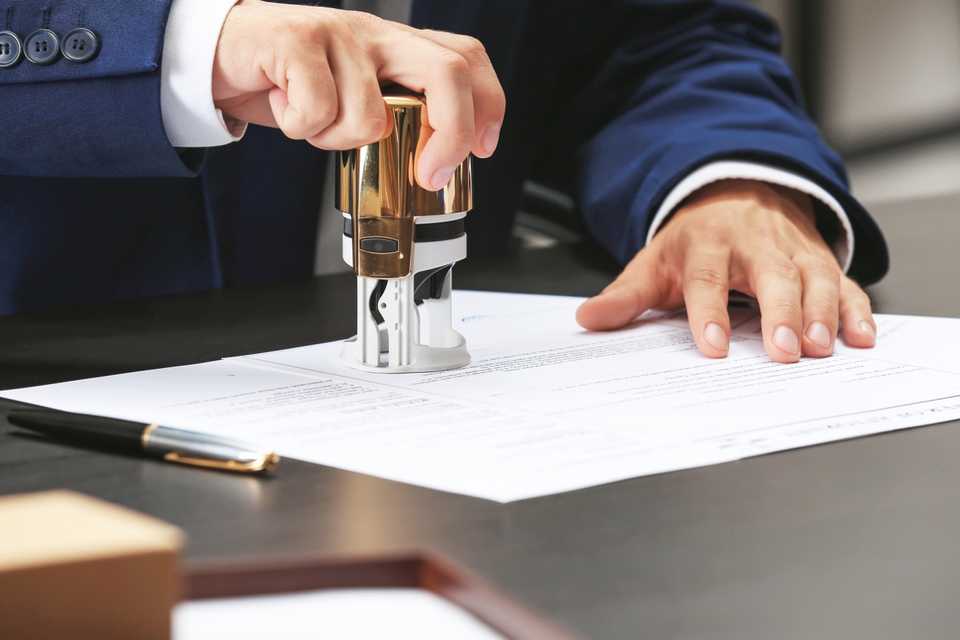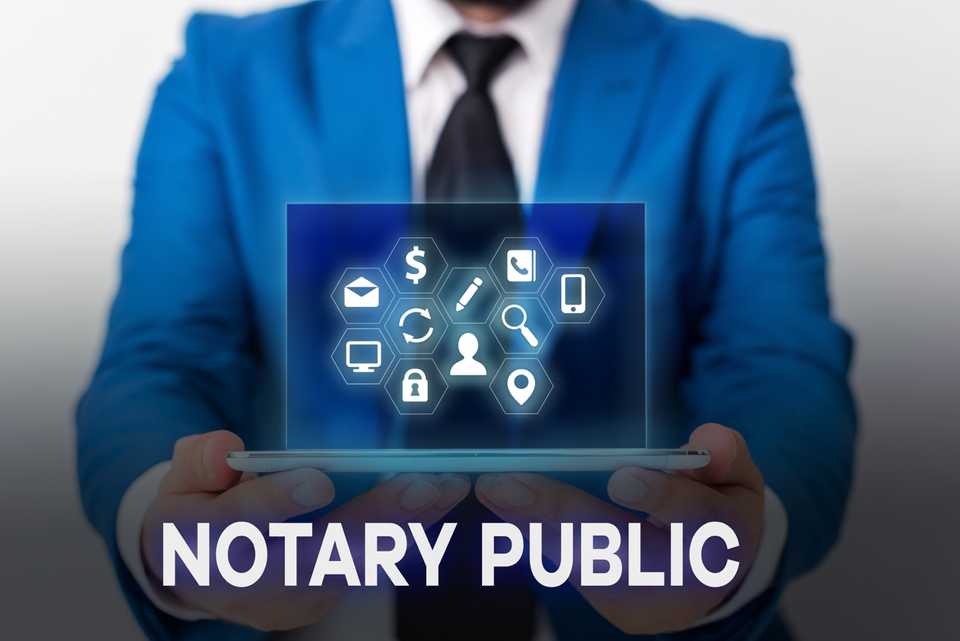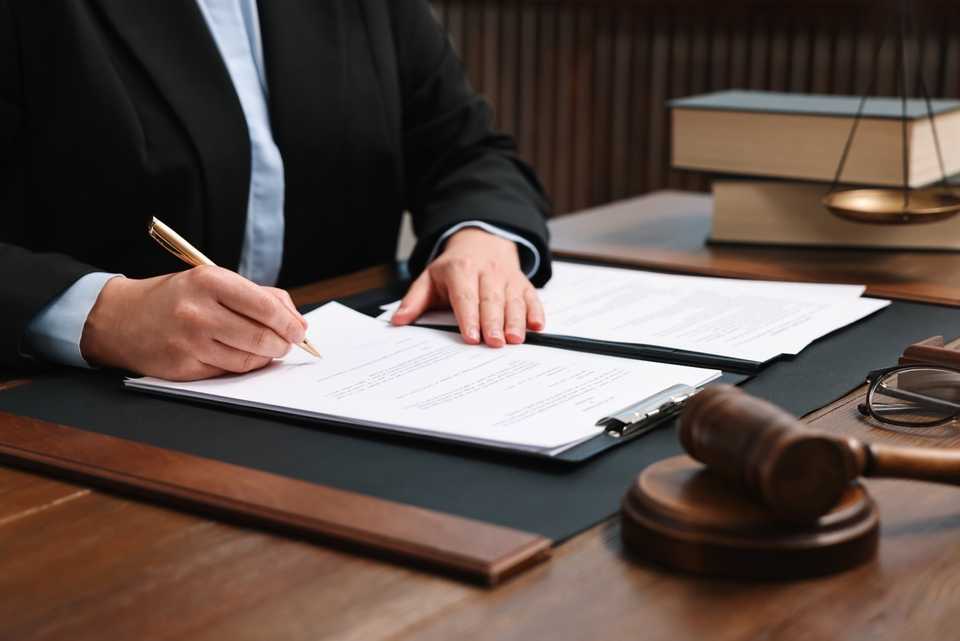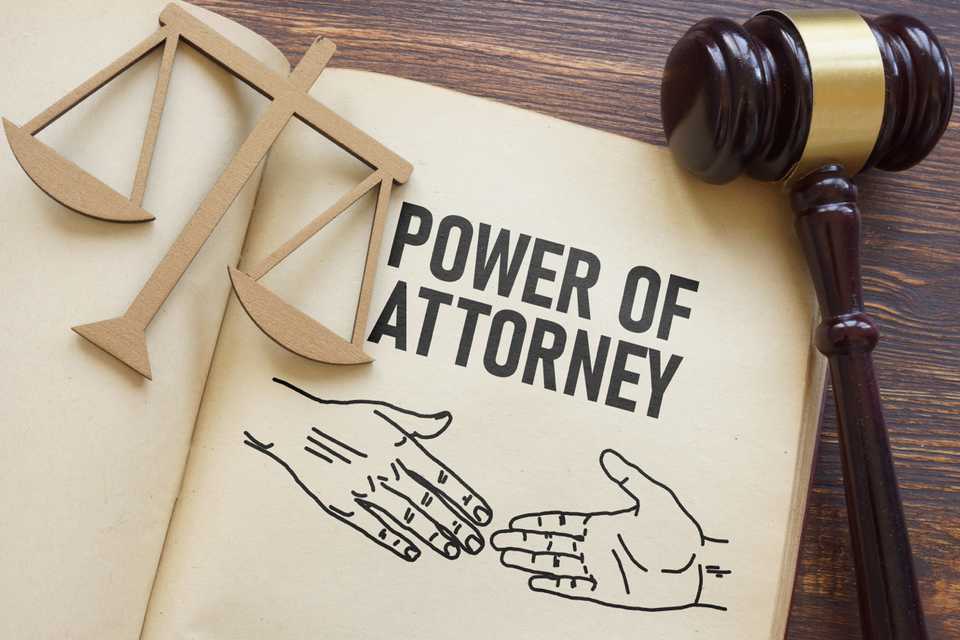Throughout our lives, we frequently encounter situations where it becomes essential to formally verify the authenticity of our documents and signatures.
Whether you're purchasing a new home, planning an overseas trip, or dealing with the intricacies of estate management, the need for notarized documents is more common than many might assume.

Notarization acts as a safeguard, confirming the validity and integrity of important legal documents. This process ensures that documents are recognized as authentic and legally binding, making them essential in many legal and personal matters.
What Does It Mean to Have a Document Notarized?
Notarization is a process that involves a legal official known as a notary public verifying the authenticity of a document. When a document is notarized, it means that the notary public has witnessed the signing of the document, confirmed the identities of the signatories, and ensured that they are signing willingly and under no duress.
The notary public then affixes their official seal and signature to the document, which serves as a certification of these facts.
The notarization process is designed to prevent fraud by ensuring that the document's signatories are who they claim to be and that they are entering into the agreement of their own free will. This added layer of verification helps establish the document's authenticity and can make it legally binding in various official settings, such as courts or government offices.
Only a Notary Public Can Notarize a Document in Ontario!
In Ontario, the authority to notarize documents is governed by the Notaries Act. According to this legislation, only individuals who have been officially appointed as notaries public by the Ontario government are authorized to perform notarization. This appointment is typically reserved for lawyers and paralegals who are licensed by the Law Society of Ontario (LSO).
Roles and Responsibilities of a Notary Public
A notary public plays a critical role in the legal and administrative processes by performing several key functions. Here is an expanded overview of their primary roles and responsibilities:
| Roles of a notary public | Explanation |
|---|---|
| Witnessing, certifying, and attesting the execution of a document | One of the primary responsibilities of a notary public is to witness, certify, and attest to the execution of documents. This involves verifying that documents are signed according to legal standards and ensuring that all parties are doing so voluntarily and with a clear understanding of the content. The notary observes the signing process to ensure it is conducted freely, without coercion. To confirm the identities of the signatories, the notary examines valid government-issued identification, such as a driver's license or passport. Following this, the notary issues certification, which affirms that the document has been executed properly and that the signatures are genuine. This certification acts as a formal confirmation of the document's legal validity, establishing that it is legally binding and compliant with all relevant regulations. |
| Certifying true copies | An important responsibility of a notary public is to certify true copies of documents. This function involves ensuring that a copy accurately and faithfully reproduces the original document.To achieve this, the notary compares the original document with its copy, verifying that the copy is complete and identical in every detail.Once the notary confirms the accuracy of the copy, they provide a certification, often accompanied by their seal and signature, affirming that the copy is a true and accurate reproduction of the original.This certification is crucial for establishing the authenticity of the document and is often required for various legal and official purposes, such as legal proceedings, visa applications, or academic records. |
| Exercising powers of a commissioner for taking affidavits | In Ontario, notaries public are also authorized to exercise the powers of a commissioner for taking affidavits. This role encompasses several critical functions, starting with administering oaths and affirmations, which are essential for the validity of various legal documents, including affidavits. During this process, the notary public formally administers an oath or affirmation to attest that the information contained within the document is true and accurate. Additionally, notaries assist in preparing and executing affidavits, which are written statements made under oath and are crucial for legal proceedings requiring sworn testimony.By carrying out these duties, notaries public ensure that legal documents adhere to the necessary requirements for court proceedings and other legal processes. |

Overall, the role of a notary public is vital in maintaining the integrity and reliability of legal and administrative processes, providing a safeguard against fraud, and ensuring that documents are properly executed and legally binding.
In What Situations Is It Required or Recommended to Have a Document Notarized?
The need for notarized documents can arise in numerous personal and professional situations. Notarization serves as a critical process to authenticate, validate, and protect various types of documents. Here are eight common situations where notarization is required or strongly recommended :
Wills and Estate Planning
Estate planning documents, such as wills and trusts often require notarization to ensure their validity and enforceability. A notarized will, for example, carries significant weight in court, particularly if its validity is contested by heirs or other parties.
- Ensuring voluntary and informed signing: The notarization process serves as concrete evidence that the will was signed voluntarily, without coercion, and with full understanding of its contents by the testator. This is crucial in preventing disputes among beneficiaries and ensuring that the testator's wishes are honoured.
- Strengthening legal standing with affidavits of execution: Other documents related to estate planning, such as affidavits of execution, are also commonly notarized to bolster their legal standing.
An affidavit of execution verifies that the will was signed in the presence of witnesses, who can attest to the authenticity of the signature and the circumstances under which the document was executed.
- Preventing challenges and ensuring peace of mind: This additional layer of verification provided by the notary public helps to prevent potential challenges to the will's validity, such as claims of forgery, undue influence, or lack of mental capacity.
By notarizing these documents, individuals can have greater peace of mind knowing that their estate planning arrangements will be carried out according to their intentions, thus providing protection for their assets and clarity for their loved ones.
Affidavits and sworn statements in legal proceedings
As previously highlighted, a notary public holds the authority to oversee the preparation and notarization of affidavits and sworn statements, which are fundamental components in various legal proceedings. These documents are often pivotal in supporting claims or serving as essential evidence in various legal cases.
For example, an affidavit of service, which verifies that legal documents have been properly delivered to the intended recipients, is crucial for ensuring that legal proceedings can move forward without any procedural delays.

The notarization of these affidavits and sworn statements is not merely a formality but a necessary step to ensure their credibility in court. When a notary public notarizes these documents, they are attesting that the information contained within is accurate and that the person making the statement is fully aware of the legal ramifications of providing false information.
This is particularly important because affidavits and sworn statements are often made under penalty of perjury, meaning that any falsehoods could lead to serious legal consequences, including prosecution for perjury.
Divorce and Family Law
Notarization is essential in various aspects of family law, particularly in matters involving divorce, child custody, and related agreements. For instance, when a couple decides to divorce, a separation agreement is typically drafted to outline the terms of the divorce, including the division of assets, spousal support, and child custody arrangements.
To ensure that this agreement is legally binding and enforceable, it often requires notarization. The notary public's role is to verify that both parties have signed the document willingly and with full understanding of its contents, which helps prevent future disputes.
- Child custody and international travel:
In addition to separation agreements, notarization is also crucial when dealing with matters related to child custody and international travel. If a child is travelling abroad with one parent or a guardian, a notarized travel consent letter may be necessary to demonstrate that the other parent has given their consent for the trip.
This document is especially important in situations where there might be concerns about parental abduction or where international authorities require proof of consent to allow the child to enter or leave a country.
International Use
When documents are intended for use in foreign countries, notarization often serves as the initial step in a more extensive process of legal validation. Many countries mandate that documents, whether for visa applications, business transactions, or other official purposes, must first be notarized before they can be recognized or accepted by foreign authorities.
This step ensures that the documents are authentic, properly executed, and legally binding according to the laws of the originating country.
Power of Attorney
A power of attorney grants someone the authority to act on another person’s behalf in legal, financial, or medical matters. Given the significant power this document bestows, notarization is strongly recommended to ensure its validity.
The notary public verifies the identity of the grantor, ensures that they are signing willingly and with full understanding, and confirms that the document is executed without coercion. Notarization helps prevent disputes and potential fraud, providing legal assurance that the power of attorney was granted voluntarily.

For instance, in cases where an elderly person grants a power of attorney to a relative for managing finances, notarization protects against future claims that the document was signed under duress. This is particularly crucial in situations involving real estate transactions or healthcare decisions, where the agent’s authority must be clear and legally recognized.
Business Contracts and Agreements
In the business world, notarization can be essential for validating various contracts and agreements, including partnership agreements, loan documents, and promissory notes. For example, a partnership agreement may require notarization to ensure its enforceability in court.
This process adds a layer of protection by confirming that all parties involved have signed the document voluntarily and fully understand its terms. Notarization helps to prevent disputes by providing a formal verification that the agreement was executed properly and that the signatories are who they claim to be.
Educational and Professional Certifications
When submitting educational transcripts, diplomas, or professional certifications for official purposes, such as applying for a job, pursuing further education, or fulfilling immigration requirements, it may be necessary to have these documents notarized.
Notarization provides an additional layer of assurance that the copies are faithful and accurate reproductions of the original documents. This step is crucial in preventing fraud, as it verifies the authenticity of the credentials being presented and ensures they are recognized as valid by institutions or authorities.
Medical and Health Care Directives
Medical care documents, such as health care directives, living wills, and consent forms, frequently need to be notarized to guarantee their legal validity and enforceability. These documents are essential for outlining an individual’s wishes regarding medical treatment in scenarios where they are unable to communicate their preferences due to incapacitation or serious illness.
For instance, a living will may specify whether a person wants life-sustaining treatment in the event they cannot make decisions themselves. Notarization of these documents serves to confirm their authenticity, ensuring that the individual's instructions are not only clear but also legally recognized.

This added layer of verification is crucial, particularly in situations where there might be disputes among family members or healthcare providers regarding the patient's true wishes. Notarization helps to prevent such conflicts by providing concrete evidence that the document was executed properly and reflects the patient’s informed and voluntary choices.
In each of these eight situations, notarization serves to authenticate documents, prevent fraud, and ensure that the documents meet legal and administrative requirements. This process helps to protect the interests of all parties involved and provides added assurance of the document’s validity and integrity.
JuriGo helps you find a lawyer to notarize a document near you in Ontario!
Notarization is crucial because it ensures the authenticity and integrity of important documents, helping to prevent fraud and making them legally binding.
If you need to notarize a document, whether to authenticate legal contracts, validate business agreements, secure personal transactions, or meet official requirements, finding a lawyer who is also a notary public in Ontario near you is easier than you might think. With JuriGo, you can quickly connect with qualified lawyers in your area who are authorized to notarize documents!
Whether you're handling legal matters, finalizing business deals, or managing personal affairs, JuriGo simplifies the process, ensuring that you have access to the right expertise. This allows you to have your documents authenticated, validated, and legally recognized without any hassle, giving you peace of mind and confidence in your legal transactions!

JuriGo is a simple, fast and free way to find a lawyer! All you have to do is fill in our request form and tell us about your situation.
Following your request, we will quickly put you in touch with a lawyer near you. There is no obligation on your part!
